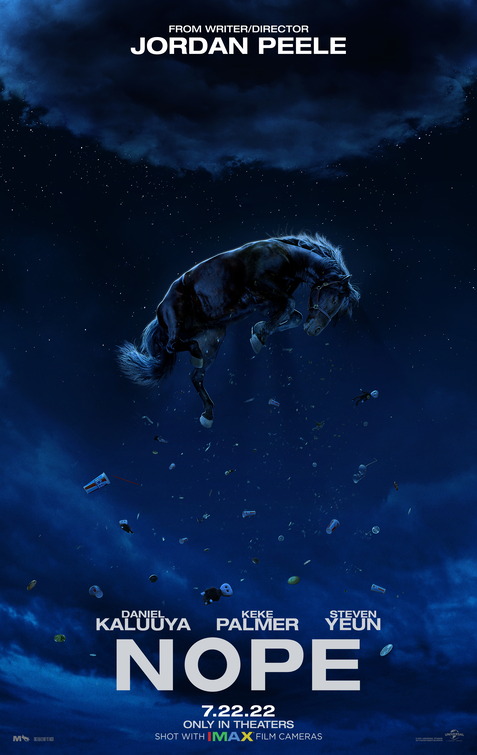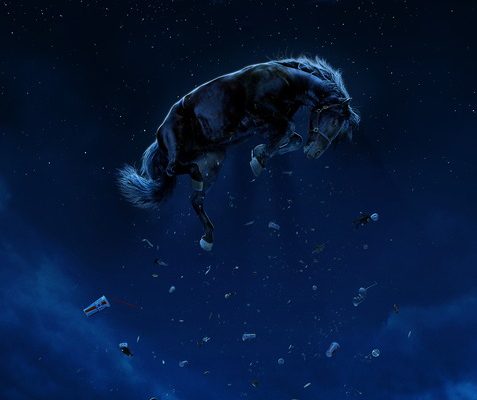Within two movies, Oscar winning writer and director Jordan Peele has catapulted himself into the best-known brand in the world of horror. He’s the first auteur to reach this cinematic altitude since M. Night Shyamalan delivered The Sixth Sense and Unbreakable in the late 1990s.
Peele is proving himself more and more as a major director of genre spectacle and vision. Each of his three directorial efforts hit people differently; arguably his scripts have had slightly diminishing returns, but Peele has only grown stronger as a visual stylist and orchestrator of big screen scares. It would be a sin of omission not to mention the music of frequent Peele collaborator Michael Abels. Scoring all three of Peele’s feature films, Abels’ unseen hand heightens the tension, dread, and suspicion that Peele cultivates within each frame.
Nope begins as Close Encounters of the Third Kind and then transitions into Jaws and stays there, and it’s that shift that audiences will find most engaging. It’s around the hour mark that the movie finally puts all its cards on the table and declares what it is and what the remaining movie is going to be about.
All the stutter steps and vagaries are cast aside, and the movie finally shifts into its grand entertainment of a group of humans learning about an overwhelming and unusual threat and plotting their unorthodox plan of attack. The second half of the movie is entirely more fun because it’s a big hunt and it allows our characters to make use of what they have learned to form conclusions and strategic moves and adjustments. It’s a scenario that finally allows Peele to finally play with all the setups he’s spent an hour carefully designing.
While the climax is great, and the movie gets consistently better, many of its thematic ties fail to come together. Being a Jordan Peele horror movie, the audience expects extra layers of social-political commentary and allegories. The back-story for Ricky as a child actor is given a lot of attention and screen time for a two-hour movie, and Peele doesn’t bring it to a head in a way that justifies its inclusion.
Thematically, you can make some speculative reaching about the exploitation of animals for spectacle, about underestimating and not respecting nature, and even setting up for later tragedy, but it all seems less meaningfully integrated than any other Peele movies’ elevated subplots.
With the Ricky back-story, there is even a literal anticipation of a literal shoe to drop, which seems so obvious as a visual metaphor. Then there’s the family history of working for Hollywood as horse wranglers, which also feels underdeveloped. There are also rules that it establishes that Peele isn’t fully consistent with (the “not looking” of it all).
Nope is undoubtedly the third best Jordan Peele horror venture, and while it clearly makes use of science fiction concepts and its rich iconography, it’s still very firmly a movie rooted in horror, the horror of the unknown, the horror of being small and helpless, the horror of being left behind.
Despite Nope not fulling sticking the landing, Jordan Peele deserves to continue working on his own terms with a healthy budget and without the heavy studio oversight that burdens the majority of filmmakers working today.
Letter Grade: B



